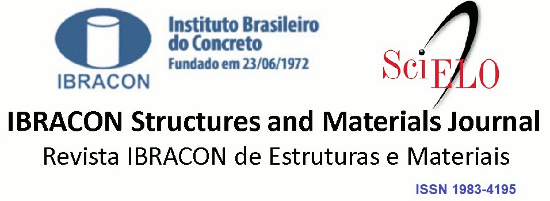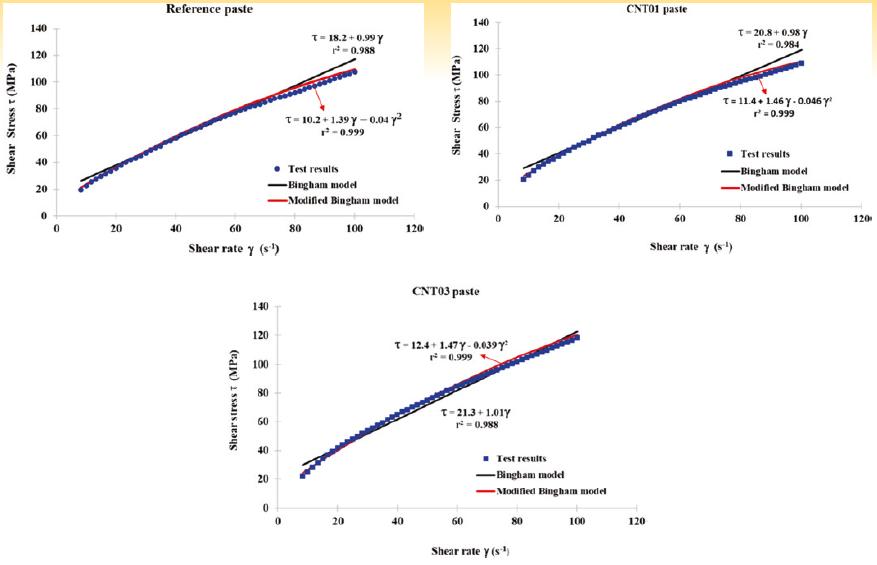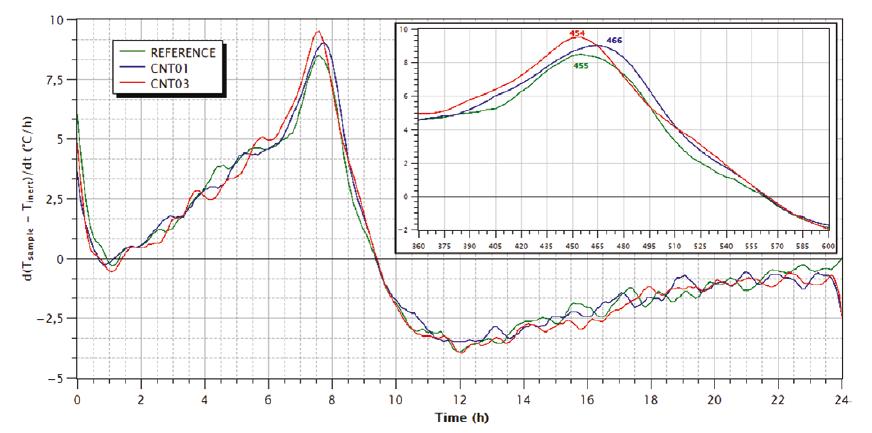Abstract
Carbon nanotubes are a promising material to solve the low tensile strength and ductility of Portland cement-based materials. Carbon nanotubes (CNTs) synthesized directly on cement clinker particles can also reduce production costs and help dispersion. In this scenario, this paper analyzes the fresh state rheological behavior, as well as the initial hydration period of blast-furnace slag (Brazilian CP III 40 RS) cement pastes produced with CNTs grown directly on clinker. CP III 40 RS was selected since it is one of the most used cement by the construction industry in Brazil. Cement pastes containing 0.1% and 0.3% of CNTs with respect to cement content were compared with CNT-free pastes. No chemical admixtures were used as a dispersant in all cases. The yield stress, plastic viscosity, temperature profile and evolved accumulated heat during the initial hydration period as well as setting times are the properties investigated. The results show that the addition of CNTs does not alter the rheological behavior of the cement pastes considering the employed concentrations, although the yield stress values were larger. The presence of CNTs in the cement pastes did not change the evolved accumulated heat during the first 72 hours of the hydration period.
Keywords:
carbon nanotubes; blast-furnace slag cement pastes; fresh state rheological behavior; hydration heat; setting times









